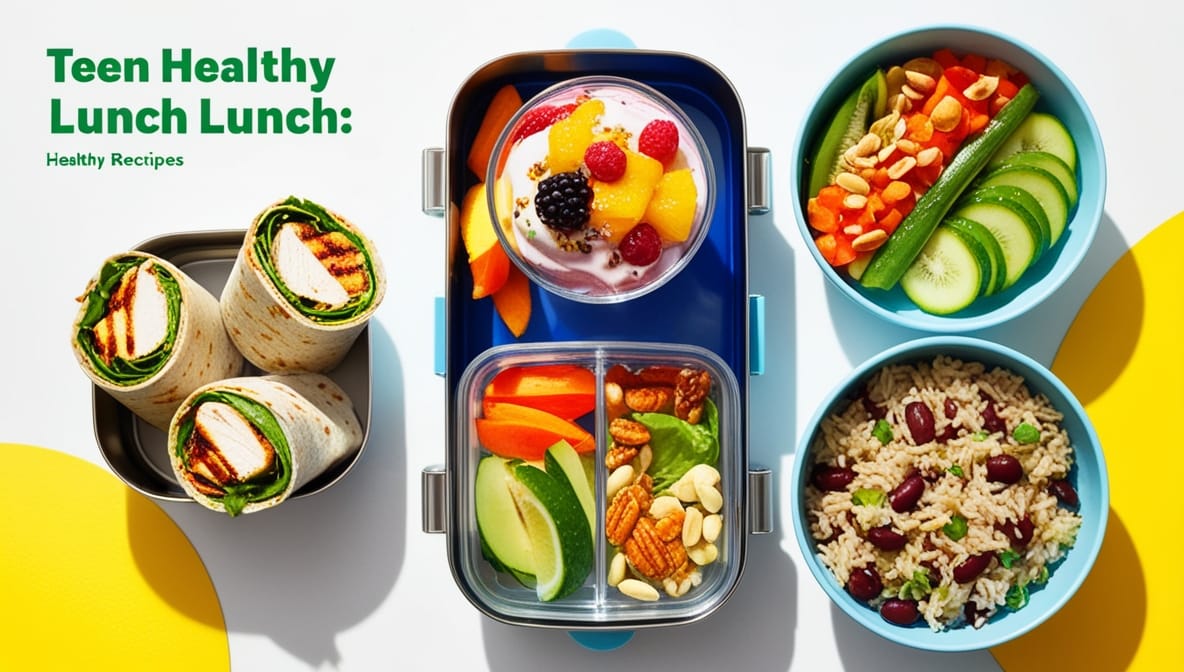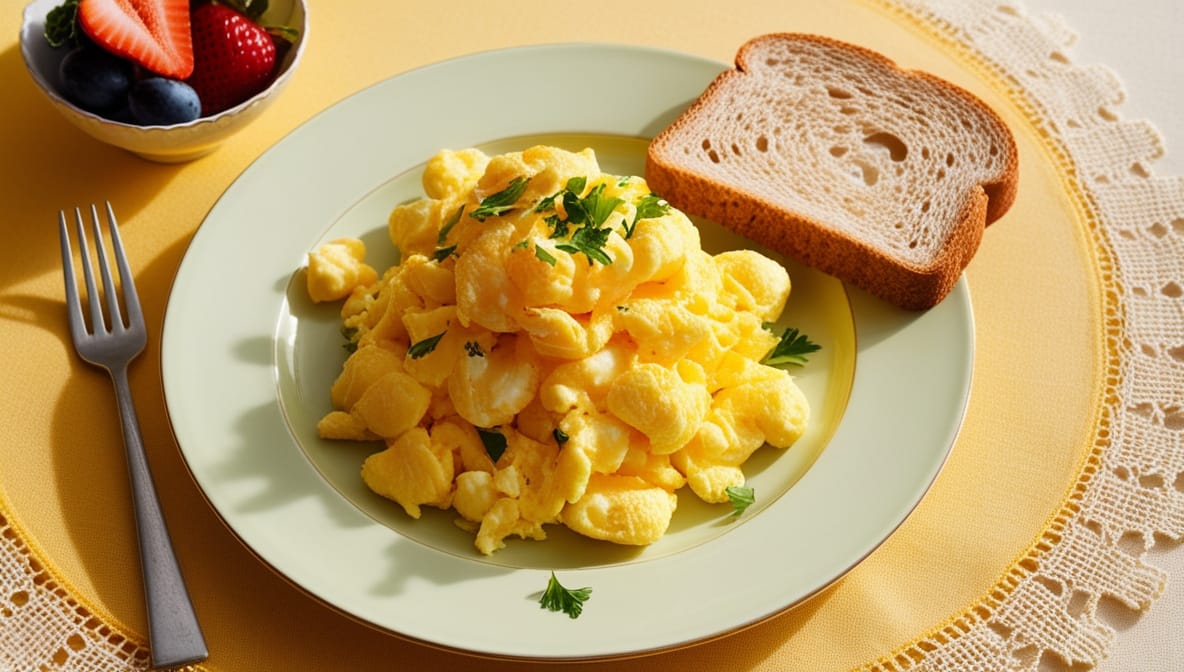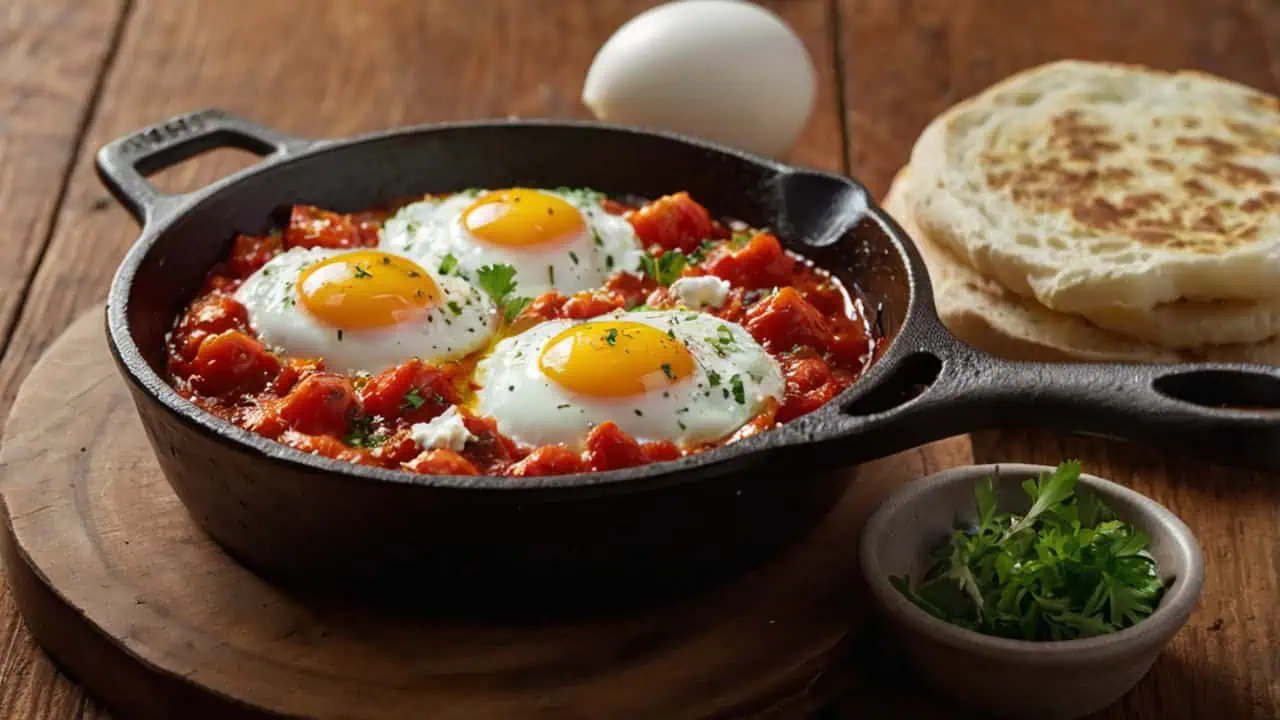
Low Cholesterol Breakfast Recipes: Easy and Heart-Healthy Ideas
Low Cholesterol Breakfast Recipes: Easy and Heart-Healthy Ideas
A heart-healthy breakfast is the perfect way to start your day on the right foot. For those managing cholesterol levels, it’s important to focus on meals that are low in saturated fats and cholesterol while being rich in nutrients like fiber, plant-based proteins, and healthy fats. With the right ingredients and preparation methods, you can create breakfasts that are as delicious as they are beneficial for your heart.
Why Low Cholesterol Breakfast Recipes Are Important for Heart Health
Starting your day with low cholesterol breakfast recipes is a simple yet impactful way to support your heart health and overall well-being. According to the American Heart Association, reducing LDL (“bad”) cholesterol through a balanced diet is a crucial step toward preventing cardiovascular disease. By choosing meals rich in whole grains, fresh fruits, and plant-based proteins, you can enjoy satisfying breakfasts that contribute to a healthier lifestyle.
1. Supports Heart Health
Cholesterol levels directly impact heart health. Excess LDL (low-density lipoprotein) cholesterol, often referred to as “bad cholesterol,” can lead to the buildup of plaques in arteries, increasing the risk of heart disease and stroke.
- Low Cholesterol Benefit: Replacing high-saturated-fat foods with nutrient-rich options like oats, fruits, and healthy fats helps reduce LDL cholesterol levels and promotes arterial health.
- Foods to Embrace: Oatmeal, avocados, nuts, and seeds.
2. Promotes Weight Management
Low cholesterol breakfasts are typically nutrient-dense and lower in calories, making them ideal for those looking to maintain or lose weight. Foods high in fiber and protein keep you feeling fuller for longer, reducing the likelihood of unhealthy snacking later in the day.
- Why It Works: Fiber slows digestion and stabilizes blood sugar levels, while plant-based proteins provide lasting energy without adding cholesterol.
- Great Options: Overnight oats with berries, chia pudding with almond milk.
3. Provides Sustained Energy
Unlike high-fat, high-cholesterol meals that can leave you feeling sluggish, low cholesterol breakfasts provide clean energy to power your day. Whole grains, fruits, and healthy fats offer steady energy release, improving focus and productivity.
- Why It Matters: Starting your day with balanced, heart-healthy ingredients prevents energy crashes and keeps you feeling alert.
- Energy-Boosting Ingredients: Whole-grain toast with avocado, a smoothie bowl with flaxseeds and spinach.
4. Encourages Healthy Eating Habits
Breakfast influences your dietary choices throughout the day. By choosing a low cholesterol meal in the morning, you’re setting the stage for healthier eating patterns that benefit both your heart and overall health.
- How It Helps: A nutritious breakfast decreases cravings for high-fat, high-cholesterol foods later on.
- Long-Term Benefits: Establishing this habit helps reduce cholesterol levels over time and promotes lifelong heart health.
5. Reduces Risk of Chronic Illnesses
Diets high in saturated fats and cholesterol are linked to increased risks of chronic conditions such as hypertension, diabetes, and obesity. Starting your day with a low cholesterol breakfast reduces your exposure to these risks while providing protective nutrients.
- Heart-Protective Foods: Berries for antioxidants, oatmeal for soluble fiber, and flaxseeds for omega-3 fatty acids.
- Example Meal: A bowl of oatmeal topped with blueberries, walnuts, and a drizzle of honey.
6. Suitable for Everyone
Low cholesterol breakfasts are not only beneficial for those with high cholesterol—they’re also an excellent choice for anyone looking to maintain a healthy lifestyle. These meals are versatile, easy to prepare, and suitable for various dietary preferences, including vegetarian and vegan.
- Inclusion-Friendly: Dairy-free options like almond milk and plant-based proteins like tofu make low cholesterol breakfasts accessible to all.
- Example Meal: Tofu scramble with vegetables and whole-grain toast.
7. Easy to Prepare and Customize
Low cholesterol breakfasts don’t require complex recipes or hard-to-find ingredients. Simple swaps and smart meal planning can help you create delicious, heart-healthy options that fit into your routine.
- Quick Tips:
- Swap whole eggs with egg whites.
- Use avocado or nut butters instead of butter or margarine.
- Replace sugary cereals with oatmeal or quinoa.
Making Low Cholesterol Breakfasts a Habit
Incorporating low cholesterol breakfasts into your routine is simple when you focus on the right ingredients. With choices like whole grains, fruits, vegetables, and plant-based proteins, you can enjoy meals that are flavorful, satisfying, and great for your heart.
For more healthy morning options, visit Healthy Meals for Breakfast.
By prioritizing low cholesterol breakfasts, you’re not only improving your heart health but also establishing a foundation for balanced eating throughout the day. Let these benefits motivate you to start your mornings with nutritious, heart-friendly choices!
Key Ingredients for Low Cholesterol Breakfast Ideas

Creating a delicious and heart-healthy breakfast starts with the right ingredients. By choosing nutrient-dense foods that are naturally low in cholesterol, you can enjoy meals that support heart health without sacrificing flavor. Here’s a detailed look at the best ingredients for crafting low cholesterol breakfasts.
1. Oats
Oats are one of the best foods for lowering cholesterol, as they contain soluble fiber, which binds to cholesterol in the digestive tract. The Harvard T.H. Chan School of Public Health highlights how eating fiber-rich foods like oats can reduce LDL cholesterol and improve heart health.
- Why They Work: Soluble fiber reduces LDL (“bad”) cholesterol levels.
- How to Use:
- Make warm oatmeal topped with fresh fruit and nuts.
- Prepare overnight oats with almond milk and berries.
- Use oat flour for pancakes or muffins.
2. Whole Grains for a Cholesterol-Lowering Breakfast
Whole grains like quinoa, brown rice, and whole-grain bread are excellent sources of complex carbohydrates and fiber, which are crucial for maintaining healthy cholesterol levels.
- Why They Work: Fiber-rich whole grains promote heart health and stabilize blood sugar.
- How to Use:
- Serve quinoa as a base for breakfast bowls.
- Use whole-grain bread for avocado toast.
- Replace white rice with brown rice in breakfast stir-fries.
3. Fresh Fruits for Healthy Breakfasts with Low Cholesterol
Fruits are rich in antioxidants, fiber, and vitamins, making them a staple for heart-healthy breakfasts. Berries, bananas, apples, and citrus fruits are particularly beneficial for managing cholesterol levels.
- Why They Work: Antioxidants and pectin (a type of soluble fiber) help lower LDL cholesterol.
- How to Use:
- Add sliced bananas or berries to oatmeal.
- Create fruit salads with oranges, apples, and kiwi.
- Blend frozen berries into smoothies.
4. Vegetables
Vegetables aren’t just for lunch and dinner—they’re a fantastic addition to breakfast. Spinach, kale, tomatoes, and bell peppers are nutrient-dense options that contribute to heart health.
- Why They Work: Low in calories and high in fiber, vitamins, and minerals.
- How to Use:
- Sauté spinach and kale for a tofu scramble.
- Add tomatoes and avocado to whole-grain toast.
- Blend spinach or kale into green smoothies.
5. Healthy Fats for Heart-Friendly Breakfast Recipes
Not all fats are created equal. Healthy fats, such as those found in avocados, nuts, seeds, and olive oil, are essential for heart health. They help increase HDL (“good”) cholesterol and lower LDL cholesterol.
- Why They Work: Unsaturated fats improve cholesterol profiles and reduce inflammation.
- How to Use:
- Mash avocado on whole-grain toast.
- Sprinkle chia seeds or flaxseeds on oatmeal.
- Add a handful of almonds or walnuts to your cereal.
6. Plant-Based Proteins for Low Cholesterol Morning Meals
Plant-based proteins like tofu, chickpeas, lentils, and edamame are cholesterol-free and rich in nutrients, making them ideal for low cholesterol breakfasts.
- Why They Work: Replace high-cholesterol proteins like eggs and bacon with plant-based options.
- How to Use:
- Make a tofu scramble with vegetables.
- Use chickpeas in breakfast hummus with veggie sticks.
- Blend silken tofu into smoothies for added creaminess.
7. Dairy Alternatives
Traditional dairy products can be high in cholesterol and saturated fats. Opt for plant-based alternatives like almond milk, soy milk, and coconut yogurt to keep your breakfast heart-healthy.
- Why They Work: Fortified options provide calcium and vitamin D without cholesterol.
- How to Use:
- Use almond or oat milk in smoothies and cereals.
- Choose coconut yogurt as a base for fruit parfaits.
- Swap dairy cheese with plant-based spreads for toast.
8. Legumes
Legumes, such as black beans, lentils, and chickpeas, are an excellent source of fiber and plant-based protein, helping to keep cholesterol in check.
- Why They Work: Rich in soluble fiber and cholesterol-free.
- How to Use:
- Add black beans to breakfast burritos.
- Include lentils in savory breakfast bowls.
- Use chickpeas to make a creamy spread for toast.
9. Chia and Flaxseeds
Both chia seeds and flaxseeds are nutrient-dense additions to any breakfast. They are high in omega-3 fatty acids, which are known to support heart health.
- Why They Work: Omega-3s and fiber help reduce inflammation and cholesterol levels.
- How to Use:
- Stir flaxseeds into oatmeal or yogurt.
- Prepare chia seed pudding with almond milk.
- Sprinkle chia seeds into smoothies for added texture.
10. Herbal Teas and Infused Water
While not a food, what you drink can impact your cholesterol levels. Herbal teas like green tea and hibiscus tea are rich in antioxidants, and infused water provides hydration without added sugars.
- Why They Work: Antioxidants in tea support overall heart health.
- How to Use:
- Brew green tea with a slice of lemon for a refreshing start.
- Infuse water with cucumber, mint, or berries for hydration.
How to Combine These Ingredients
- Breakfast Bowl: Quinoa, sautéed kale, avocado slices, and a sprinkle of flaxseeds.
- Smoothie: Almond milk, spinach, frozen berries, and chia seeds blended together.
- Toast: Whole-grain toast topped with mashed avocado, sliced tomato, and a drizzle of olive oil.
By incorporating these heart-healthy ingredients into your breakfast routine, you can create meals that are not only low in cholesterol but also flavorful, satisfying, and nourishing for your body.
Internal Linking Opportunity: Explore more recipes featuring these ingredients in Tasty Vegetable Recipes: Flavorful and Healthy.
Delicious Low Cholesterol Breakfast Recipes for Busy Mornings

1. vernight Oats for a High-Fiber, Low Cholesterol Breakfast
- Ingredients: Rolled oats, almond milk, chia seeds, mixed berries.
- Preparation: Combine ingredients in a jar, refrigerate overnight, and enjoy a ready-to-eat breakfast.
2. Avocado Toast: A Low Cholesterol Breakfast Staple
- Ingredients: Whole-grain bread, avocado, lemon juice, and cherry tomatoes.
- Preparation: Mash avocado, spread on toasted bread, and top with a sprinkle of black pepper.
3. Tofu Scramble
- Ingredients: Firm tofu, bell peppers, spinach, and turmeric.
- Preparation: Sauté vegetables, crumble tofu, and cook with spices until heated through.
4. Chia Seed Pudding
- Ingredients: Chia seeds, unsweetened almond milk, vanilla extract, and fresh fruit.
- Preparation: Mix chia seeds with almond milk, refrigerate overnight, and top with fruit before serving.
Discover more recipes in Easy Healthy Breakfast Recipes.
Tips for Preparing Healthy Low Cholesterol Breakfast Options
- Use Plant-Based Substitutes: Replace butter with avocado or olive oil, and opt for almond milk instead of dairy.
- Incorporate Whole Grains: Use oatmeal, whole-grain bread, or quinoa as a base for meals.
- Add Heart-Healthy Toppings to Your Breakfast Recipes: Sprinkle flaxseeds, chia seeds, or nuts on cereals, yogurts, or toast.
- Batch Cook for Convenience: Prep meals like overnight oats or chia pudding ahead of time to save time on busy mornings.
Learn about more make-ahead ideas in Easy Breakfast Casserole Recipe.
Drinks to Pair with Low Cholesterol Breakfast Recipes
- Smoothies for a Cholesterol-Friendly Breakfast Drink: Blend spinach, banana, almond milk, and a handful of berries for a heart-friendly drink.
- Herbal Teas for Heart-Healthy Breakfast Pairings: Green tea and hibiscus tea are rich in antioxidants and free of cholesterol.
- Infused Water: Add slices of cucumber, lemon, or mint for a refreshing twist.
Find more drink ideas in Delicious Drink Recipes: Hydration Drinks.
FAQs About Preparing Low Cholesterol Breakfast Recipes
Here are some commonly asked questions about preparing and enjoying low cholesterol breakfasts, along with helpful answers to guide you toward heart-healthy choices.
1. What Are the Best Foods for a Low Cholesterol Breakfast?
- Answer: The best foods include whole grains (like oats and quinoa), fresh fruits (like berries and bananas), vegetables (like spinach and kale), healthy fats (like avocado and nuts), and plant-based proteins (like tofu and chickpeas). These ingredients are naturally low in cholesterol and rich in nutrients that support heart health.
2. Can I Still Eat Eggs on a Low Cholesterol Diet?
- Answer: Whole eggs are high in cholesterol, but egg whites are cholesterol-free and a great alternative. If you love eggs, consider limiting your intake to no more than three whole eggs per week and use egg whites or plant-based substitutes for everyday cooking.
3. Are Dairy Alternatives Better for Cholesterol?
- Answer: Yes, dairy alternatives like almond milk, soy milk, and oat milk are cholesterol-free and often fortified with calcium and vitamin D. They’re excellent substitutes for traditional milk and can be used in cereals, smoothies, or coffee.
4. Can I Eat Avocados on a Low Cholesterol Diet?
- Answer: Absolutely! Avocados are rich in monounsaturated fats, which are heart-healthy and help increase HDL (good cholesterol) while lowering LDL (bad cholesterol). Use them on toast, in smoothies, or as a topping for breakfast bowls.
5. Are All Fats Bad for Cholesterol?
- Answer: No, not all fats are bad. Unsaturated fats, such as those found in nuts, seeds, olive oil, and avocados, are beneficial for heart health. Saturated fats, like those found in butter and full-fat dairy, should be minimized.
6. What Drinks Are Good for a Low Cholesterol Breakfast?
- Answer: Opt for heart-healthy drinks like green tea, hibiscus tea, or smoothies made with plant-based milk. These beverages are low in calories, free of cholesterol, and packed with antioxidants.
7. How Can I Make My Breakfast More Filling Without Adding Cholesterol?
- Answer: Incorporate fiber-rich foods like oats, whole-grain bread, and chia seeds, as well as plant-based proteins like tofu and legumes. These ingredients keep you full longer without increasing cholesterol levels.
8. Are Store-Bought Cereals Okay for a Low Cholesterol Diet?
- Answer: Many store-bought cereals are high in added sugar and low in fiber, making them less ideal for a low cholesterol diet. Look for cereals made with whole grains and minimal added sugar, or make your own oatmeal or muesli at home.
9. How Can I Sweeten My Breakfast Without Using Sugar?
- Answer: Use natural sweeteners like honey, maple syrup, or mashed bananas. Fresh or dried fruits can also add sweetness while providing fiber and nutrients.
10. Are Low Cholesterol Breakfasts Suitable for Kids?
- Answer: Yes, low cholesterol breakfasts are great for kids too. Focus on whole foods like oatmeal, fruit, and plant-based milk to ensure they get the nutrients they need without excessive saturated fats.
11. Can I Prep Low Cholesterol Breakfasts Ahead of Time?
- Answer: Absolutely! Recipes like overnight oats, chia pudding, and smoothie packs can be prepped in advance for a quick and easy breakfast. Store them in the fridge for up to 3 days.
12. How Often Should I Have a Low Cholesterol Breakfast?
- Answer: Incorporating low cholesterol breakfasts daily is ideal for long-term heart health. Making it a regular habit helps manage cholesterol levels and supports a balanced diet.
Conclusion
A low cholesterol breakfast doesn’t have to be boring or complicated. With the right ingredients and creative recipes, you can enjoy meals that are delicious, satisfying, and good for your heart. Start incorporating these ideas into your routine and experience the benefits of heart-healthy eating.
Call to Action
Explore more nutritious recipes:





